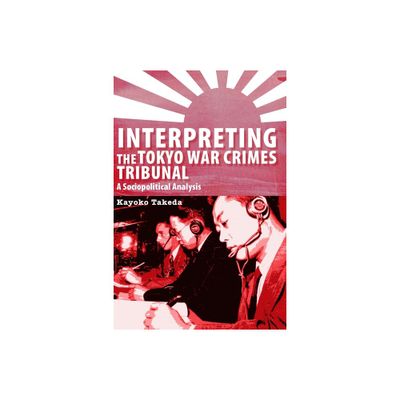Home
The Holocaust and Soviet War Crimes Trials Cold Context: 1964 Klaipeda Trial
Loading Inventory...
Barnes and Noble
The Holocaust and Soviet War Crimes Trials Cold Context: 1964 Klaipeda Trial
Current price: $180.00


Barnes and Noble
The Holocaust and Soviet War Crimes Trials Cold Context: 1964 Klaipeda Trial
Current price: $180.00
Loading Inventory...
Size: Hardcover
*Product Information may vary - to confirm product availability, pricing, and additional information please contact Barnes and Noble
This volume aims to offer a fresh perspective towards the evaluation of Soviet war crimes trials of Holocaust perpetrators, their representation through various means of media, and their reception in the context of the Cold War.
By examining the 1964 Klaipėda war crimes trial in Soviet Lithuania through a microhistorical perspective, the book explores the history of the “second wave” of Soviet justice in the 1960s. It attempts to offer insight not only into how this Soviet war crimes trial was initiated and investigated, but also into how it was presented in the courtroom and channeled through the media for publicity. The book argues that the war crimes trials conducted by the Soviet Lithuanian judiciary can be on one hand perceived as an intrinsic element of Soviet ideological propaganda and, on the other, viewed as an alternative space for disclosing memories of the mass murder of Jews, offering an opposing perspective to the official Soviet politics of memory.
Intended for both an academic audience and the general public, this volume unveils an intertwined compilation of Soviet legal history, politics of retribution, memory, and media during the Thaw period.
By examining the 1964 Klaipėda war crimes trial in Soviet Lithuania through a microhistorical perspective, the book explores the history of the “second wave” of Soviet justice in the 1960s. It attempts to offer insight not only into how this Soviet war crimes trial was initiated and investigated, but also into how it was presented in the courtroom and channeled through the media for publicity. The book argues that the war crimes trials conducted by the Soviet Lithuanian judiciary can be on one hand perceived as an intrinsic element of Soviet ideological propaganda and, on the other, viewed as an alternative space for disclosing memories of the mass murder of Jews, offering an opposing perspective to the official Soviet politics of memory.
Intended for both an academic audience and the general public, this volume unveils an intertwined compilation of Soviet legal history, politics of retribution, memory, and media during the Thaw period.


















